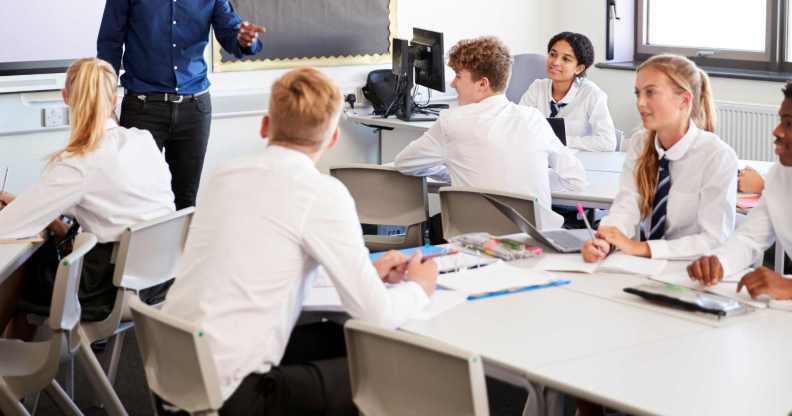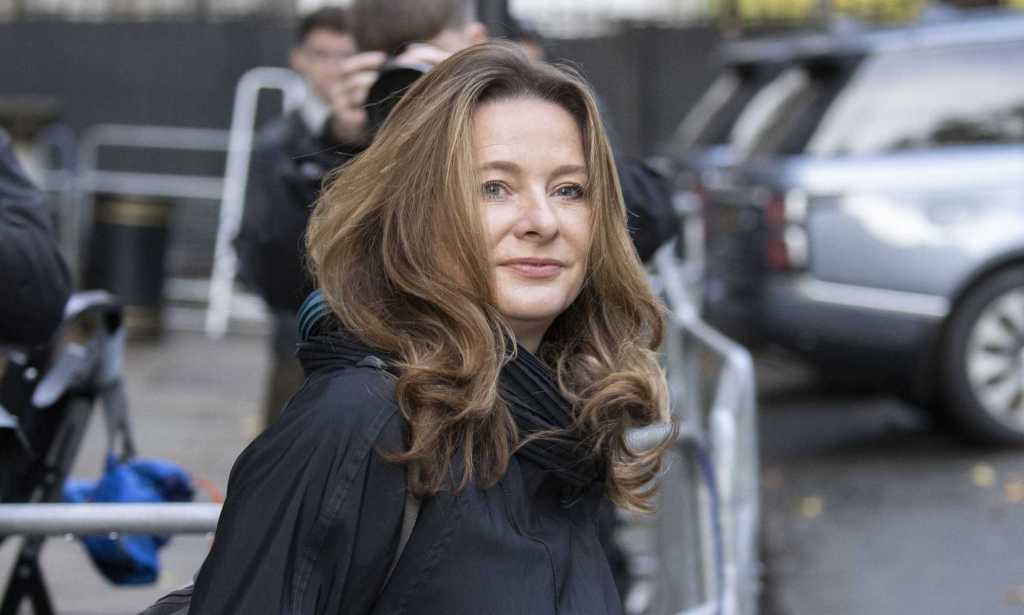Government tells all England schools to show sex education materials to parents

Gillian Keegan has called on schools to share RSHE materials with parents (Canva)
The education secretary has written to schools in England informing them that parents have the right to see the sex education material being taught to pupils.
Gillian Keegan – who has previously supported outing trans pupils to parents – says she wants to dispel the “copyright myth” that parents cannot see what is being taught to their children.
Alongside writing to schools, Keegan has also penned an open letter to parents themselves, encouraging them to “have confidence in their right to know what their children are seeing and being taught in the classroom”.
In the letter, the Conservative minister makes clear that organisations which create relationships, sex and health (RSHE) materials cannot use copyright law to prevent schools from sharing such materials with parents.
She said “any attempt to do so through contract terms would be unenforceable and void” and schools should “continue regardless” even if a provider attempts to forbid material being shared, adding it would contradict the “clear public interest”.
‘No ifs, no buts and no more excuses,” Keegan said, “This government is acting to guarantee parents’ fundamental right to know what their children are being taught in sex and relationships education.
“Today I’m writing to schools and parents to debunk the copyright myth that parents cannot see what their children are being taught.
“Parents must be empowered to ask and schools should have the confidence to share.”

The move has been supported by Parentkind, an organisation which describes itself as a “trusted voice for parents in education”.
“The key to children receiving appropriate and beneficial relationships, sex and health education (RSHE) teaching is full transparency with parents,” its chief executive said.
“When we polled parents on RSHE earlier this year, a clear picture emerged. Parents wanted to be consulted by schools in advance and agreed that the teaching of the subject was important.
“Our research clearly demonstrates that when parents are consistently informed about RSHE in advance, they are significantly likelier to have confidence in the curriculum and be supportive of the content. This move should help to reassure parents about the content and provision of RSHE.”
Why is the Tory government reviewing sex education?
Since September 2020, relationships education has been compulsory for all primary school aged pupils and relationships and sex education (RSE) has been compulsory for those receiving secondary education.
Just over two years later, in March 2023, the Department for Education announced it would undertake a statutory review of RSHE guidance after the department said it received “disturbing” reports of “inappropriate material” being taught in some schools.
At the time, Keegan said she was “deeply concerned” by the reports and said the government’s review would “leave no room for any disturbing content, restore parents’ confidence, and make sure children are even better protected”.
The non-inquiry review session took place in May, where six representatives from various groups presented oral evidence to the Women and Equalities Committee headed up by MP Kate Osborne.
During the first part of the session, the committee heard from Biology Matters at Policy Exchange, Safe Schools Alliance UK and the Family Education Trust, organisations which have expressed anti-trans and anti-drag views and went on to claim schools are telling gay and lesbian youngsters to transition, if they express same-sex attraction.
Following this, at the PinkNews Westminster Pride Reception, Osborne said she believes the government’s review is being used by certain groups as a means of pushing anti-trans narratives.
“I think that it’s right that we should be reviewing it, we should always be looking at what we’re teaching our children in schools,” she said at the time on the review.
“But, I actually think that we shouldn’t be too prescriptive.
“I don’t think some of the rhetoric that we hear, some of the stories that we hear from some people – certainly from some of the panellists on that select committee – painted a true picture of what our children are actually hearing and learning in schools.”

